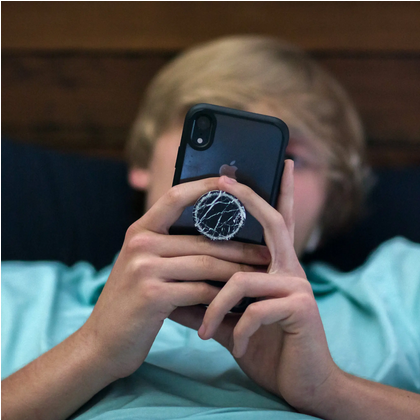Illustration by Stephen B. Morton
Like millions of other teenagers, Jack Merrill, an 18-year-old living outside of Chicago, regularly uses the online game platform Roblox. So when it rolled out a new feature — voice chatting with other users — he wanted to try it. But first, he had to pull out his driver’s license.
Jack had to pass through what’s called an age gate, an identity check that is becoming increasingly common online. Roblox wanted to verify that he was at least 13 before he could voice chat. The game asked for government identification to confirm his age, and a selfie to ensure that the ID was his.
These checks are popping up across the internet as part of a global push to protect children’s safety. At least two dozen states have proposed or passed website age restrictions, many of which are focused on limiting access to pornography. Countries like Britain, Italy and Japan have passed similar laws. As of this month, seven states have passed laws requiring age checks for users on websites like Pornhub. Companies are also limiting children’s access to dating apps, gaming platforms and online shopping.
Social media is the next major target: Last week, France passed a law that will require social media platforms to verify the ages of their users and get parental consent for children under 15. Lawmakers in Congress have introduced a bill to create a minimum age for social media use, too.
But instead of only carding children who appear to be underage, age checks can ask every user to present their ID. Lawmakers in favor of the restrictions say it’s the necessary cost of creating a safer internet, but civil liberties advocates are concerned about the effects of age checks on privacy and internet freedom.
Lawmakers tried for decades to shield children from content they thought was harmful. They encouraged ID checks for R-rated movies and forced websites like MySpace and Facebook to ask that users self-report their ages. Those checks were rudimentary: With a click and a white lie, anyone could pass.
The latest attempt to restrict access to the internet is different in two ways.
First, the technology has changed. Websites can accurately discern the ages of users using digital copies of driver’s licenses or passport scans, options that weren’t available to use broadly even a few years ago.
Second, public opinion has shifted. Children are experiencing a national mental health crisis, and a majority of parents say it is their top parental concern coming out of the pandemic. They’re particularly worried about social media, which the U.S. surgeon general recently warned poses a health risk to children.
Those mental health concerns have prompted the latest wave of age restriction proposals, including laws that have passed in Louisiana, Arkansas, Texas, Utah and Virginia. Many lawmakers say that the internet should be treated as a controlled substance, like cigarettes or alcohol.
“We have agreed as a society not to let a 15-year-old go to a bar or a strip club,” Laurie Schlegel, the Republican state representative behind the Louisiana age-verification law, told my colleague Natasha Singer. “The same protections should be in place online so that you know a 10-year-old is not looking at hard-core pornography.”
Most companies using age checks assure users that their data won’t be saved. But privacy activists say that many companies and governments, which are already susceptible to data breaches, aren’t prepared to check ages without incidentally saving or revealing intimate information about users’ internet behavior — what they’re watching, who they’re talking to or what they’re buying.
The activists say that age checks are part of a slow creep toward a world where companies, and even democratic governments, have a near-total view into people’s lives. This is already the case in China, where the government uses widespread surveillance to track its citizens and limit dissent. China has cited the protection of children as a reason to restrict speech online.
“Surveillance is very much tied to authoritarianism,” said Carissa Véliz, author of the book “Privacy is Power.” “We’re really testing the limits of democracy.”
Age checks don’t always work, privacy activists argue, pointing to potential loopholes such as virtual private networks. Children can also ask someone older to help them create an account, or attempt to use fake identification. The age gates are also a barrier to the internet for some adults, who can’t get them to work, or lack identification
